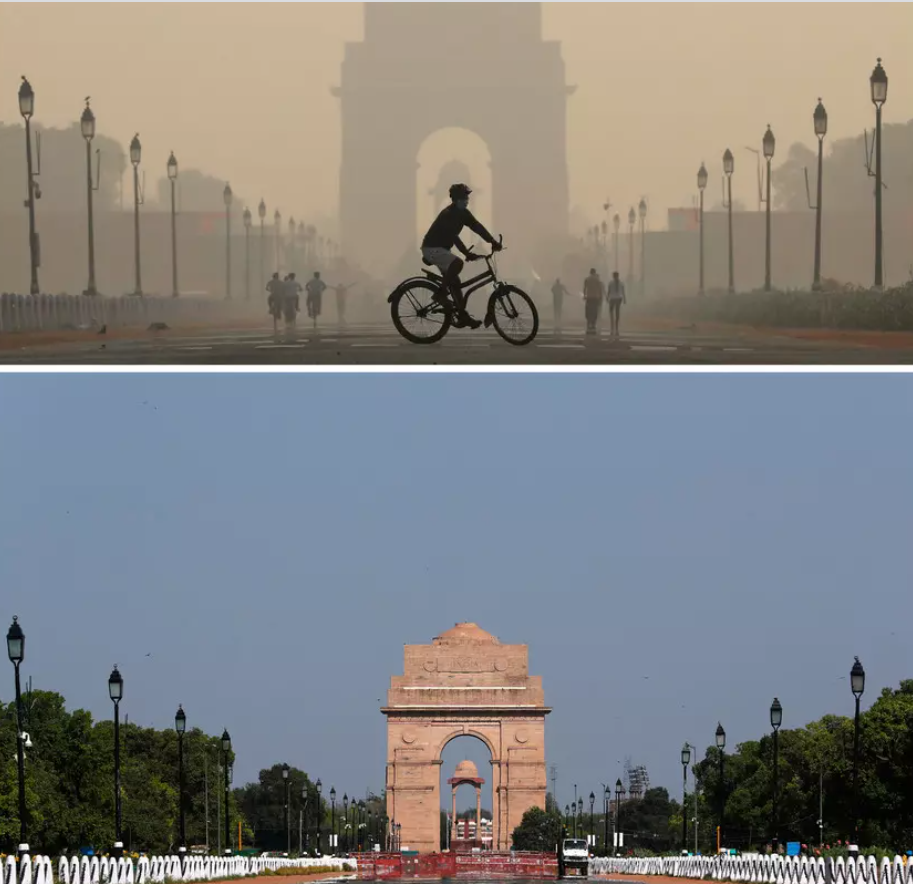
An invisible virus has made our individual actions more visible than ever – and revealed our true power to face societal crises beyond COVID-19.
As people around the world work together to “flatten the curve” of COVID-19, the outsize roles we play in Earth’s natural system have become clear as never before. Billions of humans can now see how they are interconnected, working together to slow the spread of a lethal virus through their individual actions. Within this experience, if we are successful, lies the potential lesson we need not just to stop the worst projections for COVID-19,but to address other pressing societal challenges, including climate change.
The truth as we knew it
This dawning sense of individual impact in an interconnected world – what has been called, “systems thinking” – is in many ways the true story we’ve long avoided acknowledging. We’ve gotten by for hundreds, even thousands of years, obfuscating the cost of the destruction of nature as an externality of economic progress, hardly considering the debt accruing on the system that hosts the global economy itself: Earth. It’s a line of thinking easy enough to believe. The choking air pollution in India is hardly palpable in post-industrial America and Europe. The dead-zone in the middle of the Gulf of Mexico caused by industrial agricultural waste is barely detectable along the beaches people frequent from Sarasota, Florida to Tulum, Mexico.

In some ways, the warning signs of ecosystem collapse – red tides along Florida’s beaches, coral bleaching in Australia year after year, even the annihilation of global insect populations, are easy to dismiss in day-to-day life, and even harder to act upon. Our collective impact on nature may register, but our collective ability to address the damage we’ve done to nature has seemed impossible. Until now.
While environmental pollution and massive inefficiencies like food waste have long been written off as “externalities” in our economic system, COVID-19 awakens us to an alternative, truer reality: each of us in our home ecosystems is part of an interconnected system that we have the power to change. It’s a transformative narrative that accomplishes what no isolated and episodic story of environmental damage, from melting glaciers to fire storms, could ever do. Instead, we’re all attentively following a fast-moving virus, piecing together information on how we can best defend ourselves and protect our neighbors, fellow citizens and the world itself from the worst-case scenarios. In a story with no predetermined ending, we all have a role to play that is empowering as much as it is restraining. The virus is raging, but we all can help stop it. When’s the last time you felt you could freeze a glacier, or actually help extinguish a forest fire? What we do here – and what we learn – could save lives and help us all endure and thrive as individuals, as communities, as a species.
The opportunity in the crisisWe’re waking up to a new world, not apart from nature, but a part of it. We now have the opportunity to see how our collective actions have a wider impact. It extends past COVID-19, even now. As social distancing and lockdowns have kept us inside, we have slowed the virus’ transmission in hard hit areas from South Korea to Seattle. Along with that human impact on the disease, pollution has receded and our impact on nature has markedly diminished as well. In Venice the canals cleared. In New York, carbon monoxide levels shrank to half their usual March levels. In China, the initial lockdown drove pollution levels down by 25%. Let us not forget: Individual actions that stop pollution yield collective impact – and quickly.
When the factories come back to life and airplanes start flying again, emissions will inevitably (and regrettably) pick back up. But within our hands we will have the choice to learn from COVID-19 to live better in our own ecosystems, and within the greater natural system of Earth. Why wait? We can start now by being mindful of the energy sources we depend upon and the resources we use. In particular, eliminating food waste – something nonprofit Project Drawdown identifies as a top weapon for combating climate change – means tremendous resource savings throughout the supply chain and the avoidance of doubly harmful methane gas emissions from landfill waste. It’s impact with a multiplier.
Once the quarantines are lifted, and we go back to our daily lives, food waste will be but one more individual action that writ large – as individuals in Earth’s natural system – we can affect. It’s not a difficult concept, but it’s been hard to prove the case until now. COVID-19 makes it clear: our individual actions can ripple out to impact all of Earth’s natural systems, from climate to agriculture.
There are challenges to be met, curves to be flattened. Every action counts in this calculus. Recognizing the roles we have to play alone and together, we can be better stewards of ourselves, and Earth itself.
Article Credit: weforum
